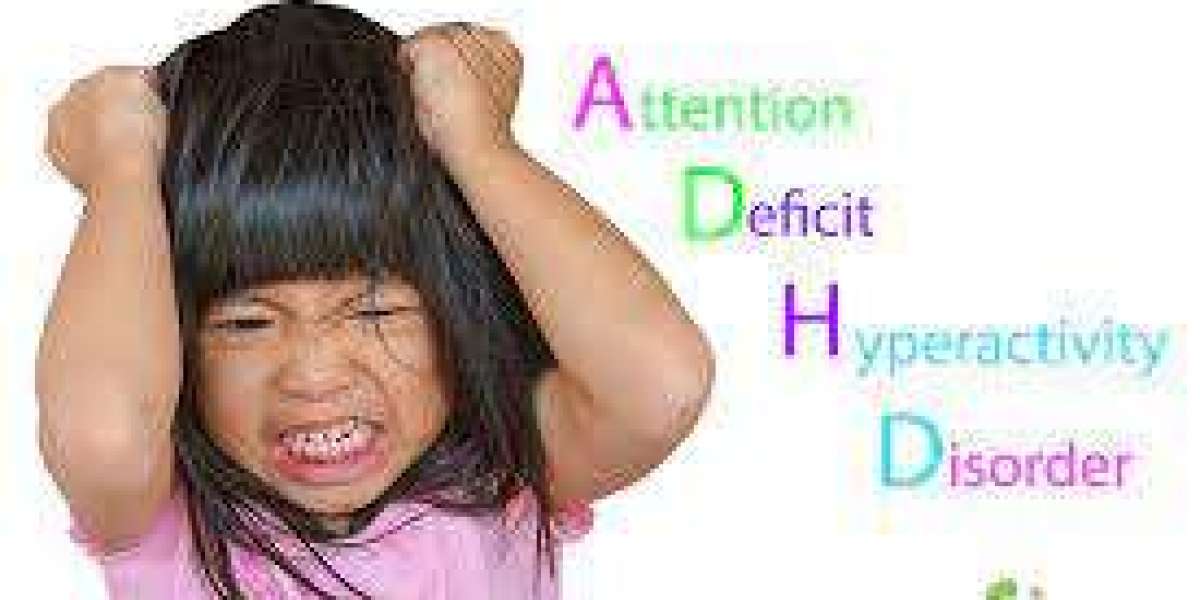Attention Deficit Hyperactivity Disorder (ADHD) is a neurodevelopmental disorder that affects people in many areas of their lives. Its symptoms, which include inattention, hyperactivity, and impulsivity, can significantly impair daily functioning and quality of life. Many individuals with ADHD diagnoses find that taking medication is a crucial component of their treatment plan. But navigating the journey while taking medication for ADHD may be challenging and complex; it's marked by ups and downs, uncertainty, and the need to make sense of things. This article explores the journey taken by individuals with ADHD through medication, from the perplexity of symptoms to the realization of an effective treatment plan. Understanding ADHD Medication: Stimulant and non-stimulant therapy are the two main types of treatment for ADHD. Stimulants, such methylphenidate (like Ritalin) and amphetamine (like Adderall), are the most often prescribed medications since they have been shown to effectively treat ADHD symptoms in a significant number of patients. They function by raising the brain's concentrations of neurotransmitters that are essential for focus, attention, and impulse control, such as norepinephrine and dopamine. In cases when stimulants prove ineffective or poorly tolerated, physicians may opt to prescribe non-stimulant medications such as atomoxetine (Strattera) or guanfacine (Intuniv). These medications work in a number of ways to reduce the symptoms of ADHD, usually by targeting norepinephrine receptors. The Journey Begins: Seeking Relief from ADHD Symptoms When they initially begin taking their medications, many people who have been diagnosed with ADHD report feeling a significant sense of relief. For people who have been burdened by symptoms that interfere with relationships, daily tasks, work obligations, and academic achievement, there is hope in the prospect of obtaining a successful treatment. People's ability to focus, pay attention, and regulate their impulses can all significantly improve within the first few days or weeks of taking medication. A greater sensation of capability and clarity is experienced, and previously unachievable activities start to appear more achievable. However, during the early stages of medication therapy, there could be challenges and adjustments. Side effects, such as appetite loss, trouble sleeping, or irritability, are possible and should be closely monitored in conjunction with medical specialists. The best medication, dosage, and regimen are usually determined by trial and error because individual responses might differ significantly. Some people may find that the medication they take works well for them right away, while others may need to try a few different ones before finding the one that works best for them. Navigating the Ups and Downs: Challenges Along the Way When using ADHD medication, people may encounter a variety of challenges and obstacles. One major issue is continuing to stick to prescribed drug schedules. If medication is skipped or forgotten, ADHD symptoms may resurface, disrupting daily routines and causing stress. Making preparations such as using medication reminders or incorporating medication into everyday activities might help improve adherence. Managing expectations and navigating societal attitudes about ADHD and medication can also be challenging. Misconceptions and the stigma surrounding ADHD might elicit feelings of shame or self-doubt, particularly when discussing treatment options with others. By being more knowledgeable about ADHD, participating in peer support groups, and receiving help from dependable sources, people may feel more empowered and validated in their treatment decisions. Furthermore, individuals may observe changes in their response to medication over time. Something that formerly dramatically decreased symptoms might no longer be effective, necessitating a change in dosage or medication kind. Reevaluating patients on a frequent basis in coordination with healthcare providers is necessary to maintain treatment optimization and alignment with individual needs. Finding Clarity: The Impact of Effective Medication Management Despite the challenges they encounter along the way, many people with ADHD who take their medications as prescribed eventually experience stability and clarity. In addition to their symptoms, patients report improvements in many other aspects of their lives when they adhere to the recommended medication schedule. Relationships blossom, academic and professional goals become more attainable, and self-esteem soars when students become more cognizant of their abilities and capabilities. Moreover, medication is often just one component of a comprehensive approach to treating ADHD. Treatment outcomes can be enhanced overall by behavioral therapies, organizational strategies, and lifestyle modifications in addition to medication management. People who attack ADHD from a variety of angles may develop skills and coping mechanisms that help them navigate life's challenges more deftly. Looking Ahead: Empowering Individuals with ADHD The course taken by people with ADHD is ever-changing, much like our understanding of the condition and its management. Innovative treatment approaches, improved public awareness and acceptance of ADHD, and advancements in medication development all contribute to improved quality of life and results for people with ADHD. However, it's critical to recognize that each person's experience with ADHD medication is different, and that what works for one individual may not work for another. Persistence, tolerance, and honest communication with healthcare professionals are crucial as patients navigate the highs and lows of their treatment. By sharing experiences, supporting one another, and advocating for greater information and services, we can empower those with ADHD to confront their journey with courage and hope. Conclusion: Using ADHD medication is a complicated experience that involves adjustments, breakthroughs, and disappointments. People with ADHD travel a path that is uniquely their own, from the initial sense of relief from symptoms to the ongoing pursuit of the greatest possible treatment outcomes. With perseverance, education, and support, children with ADHD may overcome their confusion and achieve success in all aspects of their lives.
Search
Popular Posts
-
 AC Malta - Stay Cool and Comfortable with DL Group's Air Conditioning Solutions
By dlgroupmalta
AC Malta - Stay Cool and Comfortable with DL Group's Air Conditioning Solutions
By dlgroupmalta -
 Maximizing Crop Potential: The Benefits of METROP Concentrate Liquid Foliar Fertilizer
By metropstores
Maximizing Crop Potential: The Benefits of METROP Concentrate Liquid Foliar Fertilizer
By metropstores -
 Discover Excellence in 3D Printing - Buy Creality 3D Printer at WOL3D Coimbatore
Discover Excellence in 3D Printing - Buy Creality 3D Printer at WOL3D Coimbatore
-
 A Convenient Way to Fix MetaMask Login Connection Issue
By rosekxffsf
A Convenient Way to Fix MetaMask Login Connection Issue
By rosekxffsf -
 What is Satta Matka?
What is Satta Matka?



